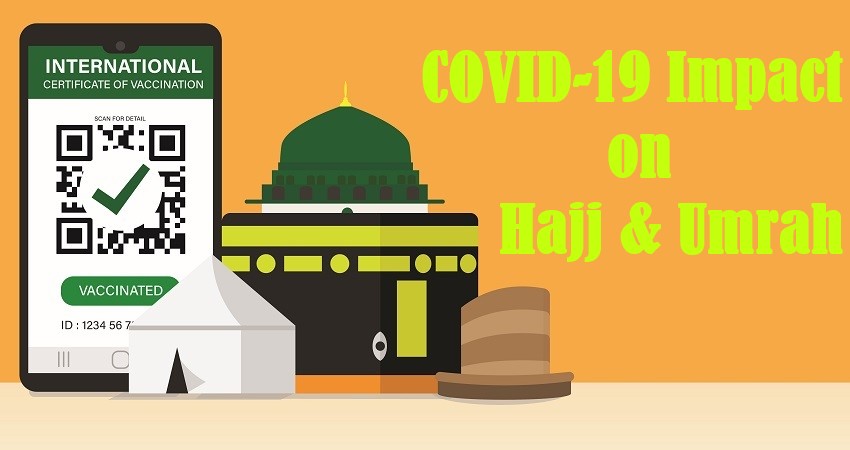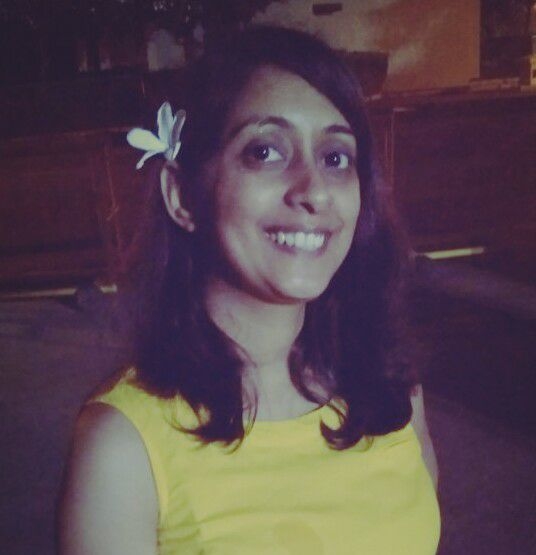Hajj and Umrah 2021 were different from the pilgrimages in the previous years. In accordance with the latest COVID-19 regulations issued by the Ministry of Hajj and Umrah, only 60,000 pilgrims completed Hajj 2021. Let’s look at the COVID-19 impact on Umrah, how the pandemic affected and changed these pilgrimages, and how Makkah is ready to welcome more pilgrims from around the world.
Pilgrims visit Makkah to perform the pilgrimage any time during the year, which is called ‘Umrah.’ Whereas ‘Hajj’ takes place on fixed dates according to the Islamic calendar once a year. Prior to the COVID-19 pandemic, the Umrah pilgrimage was performed by almost 19 million pilgrims annually. For ‘Hajj’, around 2.5 million Muslims used to visit Makkah. But, in 2021, only 60,000 vaccinated Saudi citizens were permitted to perform the Hajj due to the adverse effect of the pandemic. According to the sources, only 1000 people performed the holy Hajj. The pilgrimage was opened only for the residents of Saudi Arabia.
Considering the gravity of the COVID-19 outbreak, both the ‘Umrah’ and ‘Hajj’ seemed impossible, however, Saudi Arabia handled the pandemic as well as pilgrimage amidst the pandemic quite efficiently. The Kingdom of Saudi Arabia had less mortality rates as compared to many other nations and also managed minimal social disruption. Meticulous management by the Ministry of Hajj and Umrah made it possible for Muslims to undertake the pilgrimage and took maximum precaution to ensure the safety of the pilgrims.
COVID-19 Impact on Umrah : How the pandemic affected the pilgrimage in Makkah?
Hajj is believed as a way to wash your sins and get the mercy of Almighty Allah. It is also believed to unite the Muslims community. During Hajj and Umrah, Muslims are supposed to recite and perform prayers together, sit and eat together, and celebrate it with unity. Instead, the pandemic led to social distancing, which could not make it possible for people to come together for the pilgrimage. The pandemic led to the bifurcation of people into queues to avoid the overcrowding that existed before the pandemic. The number of people allowed at one time in the mosque was reduced to a very few ensuring that the social distancing is being followed. Additionally, face masks became mandatory for the visitors, and the people not wearing them had to bear the penalties. Police officers were on duty to note this and ensure that the guidelines were being followed.
The iftar meal (served when breaking the daylong fast) was also served in nicely sealed packages unlike previous years when pilgrims sat in lines to enjoy iftar together. The food was prepared with extreme hygiene and wellness. Moreover, the Zamzam water, considered holy water, was earlier collected from various watering points and made available in water bottles, while following social distancing and the government norms.
Suggested Read: The Grand Mosque To Drop Social Distancing For Pilgrims
Primarily, the authorities used to ask the foreign pilgrims for a negative RT-PCR test report which should be taken within 48 hours before arriving in Saudi Arabia. In addition, they are also supposed to be quarantined at a government-approved hotel for 6 days or can again take a RT-PCR test after 2 days of quarantine, and if the report is negative, they can leave the hotel.
The pilgrims who want to get entry in Haram, the Grand Mosque of Makkah, have to bring their vaccination certificates and show them in advance.
A university lecturer in Saudi Arabia, Egyptian pilgrim Aly Aboulnaga said, “I hope this is a successful hajj season. We ask God to accept everyone’s hajj and for the area to be open to greater numbers of pilgrims and for a return to an even better situation than before.”
With the advent of technology, mobile apps are also helping in tracking the updates of COVID-19 personal stats. Many apps can be used to keep your vaccination certificate, to track and warn if anyone affected with coronavirus is near you. If you want to gather for a social event, an app will give you the permit for the gathering. The app will also trace the positive people if present at the party.
There is another mobile app specially designed for people who want to enter Haram, named Eatmarna. The app helps pilgrims to book a time slot for granting access to the Grand Mosque. It was created by the Ministry of Hajj and Umrah to ensure public safety and to avoid overcrowding.
Though it still can’t be predicted when the pandemic will end, the COVID-19 impact on Umrah and Hajj will be completely relaxed in the coming months, and Makkah will start hosting pilgrims from different areas of the globe. As per the reports, the new variants of COVID-19 are also approaching. Hence, following the guidelines and restrictions are important and mandatory for the betterment of the visitors.








